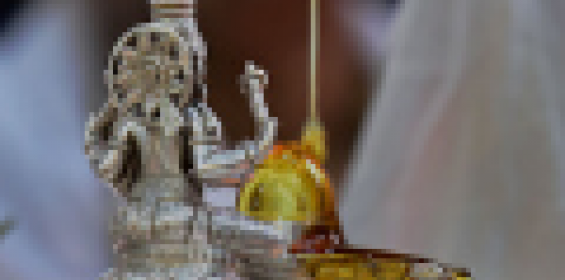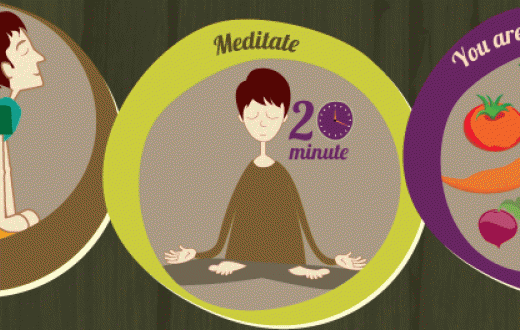Why Should we Fast on Mahashivratri
Mahashivratri fast: Who observes a fast?
As the Mahashivratri festival is approaching, it is the right time to observe a one-day fast – the Shivratri fast or Shivratri vrat seeking the blessings of Lord Shiva. All through India, many devotees observe the Shivratri fast. They gather in Shiva temples around the Shivalinga with their offerings. They pray, chant, meditate and fast all day and night. The fast or vrat is at the heart of the celebration and many follow it earnestly to increase the solemnity of their vows and intentions.
This vrat is different from those followed during other Hindu festivals, where devotees eat food after performing the puja of the deity. On this great night of Lord Shiva, the vrat continues through the day, and night.
This year, Mahashivratri falls on March 11th, 2021.
Let’s find out what motivates people to undertake this amazing fast.

What is the significance of the Shivratri vrat?
1. Setting the mental stage for deep meditation
Fasting detoxifies the body and purifies the mind. Your body feels lighter and your mind feels more relaxed as the restlessness reduces. At the same time, the mind becomes more alert. When that happens, it is more prepared for prayer, and meditation, which is the central aspect of Mahashivratri celebration.
2. Increasing the power of your prayers
When both your mind and body are detoxified, there is greater strength in your intentions and prayers. When you combine the Shivratri fast with meditation, you increase the possibility of your desires getting manifested. It is said that Lord Shiva’s grace is bestowed upon you when you observe the Shivratri vrat with sincerity and devotion; your wishes are fulfilled!
3. Focusing on meditation
Since Mahashivratri is the day that mediation is a hundred times more effective than other days, devotees solely focus on meditating on this auspicious day. Fasting enables you to control the body’s natural processes, so you are not distracted from being one with your Self.
4. Absolving you of sins
Fasting frees the mind of negative emotions like greed, lust, anger, and anxiety. It is believed that when you fast, and chant the Lord’s names, you are absolved of all your sins. Some people survive on very little easily-digestible food or simply water and milk. You can read some tips on healthy fasting on Mahashivratri here.
There is also a legend behind why people fast during Mahashivratri.
Story behind the Mahashivratri fast
The devas (Gods) and asuras (demons) were always at war with each other. However, in a rare show of solidarity, on the advice of Lord Vishnu, they churned the Ocean of Milk together for amrita, the nectar of immortality. As they used Vasuki, the serpent king, who sits on Lord Shiva’s neck, as a rope, the first thing that came out of it was the poison. The devas and asuras prayed to Lord Shiva requesting his help. The Lord drank all the poison and saved them.
His consort, Goddess Parvati, was worried that the poison would enter the Lord’s body and cause him pain. So, she held His throat to stop the poison from spreading, for one day and one night, which is why he turned blue (and earning the name Neelakantha). Since Parvati fasted the entire day and night at this time, it has become an age-old tradition to fast and stay awake all night during Mahashivratri.
So, join us on Mahashivratri!
To watch LIVE webcast of Mahashivratri celebrations with Gurudev on March 1st, click here.
To know more about this special day, visit here.
We’d love to hear from you. Leave your comments @artofliving.
Read on for tips for a healthy Mahashivratri fast here.
Join us on Mahashivaratri
FAQ's about fasting on Mahashivratri
Devotees pray, chant, meditate and fast all day and night of Mahashivratri. The Mahashivratri fast is observed to increase the power of prayers and absolve sins. On fasting, you take refuge in the divine consciousness, which brings peace and solace to all layers of consciousness.
It is good to fast on Mahashivratri for increasing focus on meditation. It is better to find your body type from a Nadi consultant. If you are more pitta type, fasting could be harmful.
Include the following in Mahashivratri fast:
* Fresh fruit and vegetable juices, milk, herbal tea, yogurt, or buttermilk
* Tapioca, potatoes, pumpkin, yams, fruits such as bananas, papaya, and melons used rock salt to maintain the taste.
* Check out some recipes in Fasting recipes for Mahashivratri
Wake up early, preferably during Brahma Muhurat (two hours before sunrise). Take a bath and wear clean clothes. Do Dhyana (meditation) followed by Sankalpa (take a pledge that you would observe the vrat whole-heartedly and sincerely). Maintain celibacy and start the vrat.
The Mahashivratri fast is usually broken after the last prahar (3 hours of the day).
Mahashivratri is meant for fasting, praying, chanting, and meditating. Devotees usually try not to sleep on the night of Mahashivratri. It is the wake-up call to move away from the conflicts and move towards truth, beauty, peace, and benevolence. It is considered an auspicious day for spiritual growth and material attainment.
Yes.
Include the following in Mahashivratri fast:
* Fresh fruit and vegetable juices, milk, herbal tea, yogurt, or buttermilk
* Tapioca, potatoes, pumpkin, yams, fruits such as bananas, papaya, and melons used rock salt to maintain the taste.
* Check out some recipes in Fasting recipes for Mahashivratri
Shivaratri is the most unique time to rise above the mundane and bask in the supreme glory of the infinite, innocent and blissful Shiva tattva. Celebrating the Shiva tattva in oneself is real Mahashivaratri.
* Every fourteenth day of every month (one day before Amavasya or the new moon day) in the Hindu or lunar calendar is Shivratri. There are twelve to thirteen Shivratris in a year. Shivratri in the month of Magha, during February-March, is Mahashivratri. So Shivratri occurs once a month and Mahashivratri once a year.
* On Mahashivratri, in the northern hemisphere, there is a natural upsurge of energies within all the lifeforms. Such a thing doesn't happen on Shivratri.
There are twelve to thirteen Shivratris in a year. Shivratri in the month of Magha, during February-March, is Mahashivratri. This day, in the northern hemisphere, there is a natural upsurge of energies within all the lifeforms. This energy can be used to see the subtler truth beyond the dimensional perception. This happens in deep meditation on Mahashivratri. Mahashivratri has scientific and spiritual significance.
Lord Shiva is said to have appeared in the form of Linga at midnight of Mahashivratri. So Mahashivratri is known to be the birthday of Lord Shiva.
Mahashivratri is celebrated on the fourteenth day of Magha month, during Feb-March a day before the new moon day.
It is believed that the days are related to planets, and planets belong to a particular God. The day of Shivratri is of Lord Shiva. Monday is of Lord Shiva and Friday is of Devi. No point keeping fast on a particular day to please a particular God. Fast is to cleanse the body. Just knowing this is sufficient. Don't worry about it too much.
There is no beginning and end to Shiva. That is what is Shiva Linga. Know more about the Mystical Shiva tattva.
If Shiva is thought to be born, then Shiva will be confined to a body, time, and space. But Shiva is Anadi - birthless, Ananta - deathless. Fire, water, earth, and air elements are in the ether or space element. Shiva is like the ether element, the house for all the universe. Shiva is omnipresent, omnipotent and omniscient. Know more in Shivratri - Enlivening the Shiva Tattva.
Shiva is the entire universe. Shiva is where everything has come. Everything is sustained in Shiva. Shiva is in which everything dissolves. There is no way you can step out of Shiva tattva at any time. Shiva is the summum bonum of the whole universe. The entire universe is in the form of Shiva in the form of the whole creation and yet Shiva is formless. You can understand or realize Shiva in meditation.
Don't keep the linear thinking. In the east, spherical thinking says - divine energy (God), space, and matter have no beginning and end. To know more watch the video - Who Created God? by Sri Sri Ravi Shankar.







































